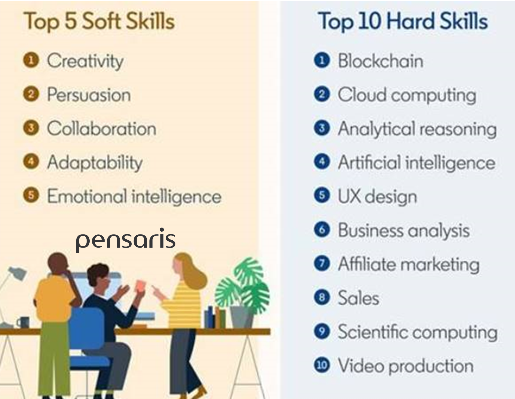Insights

Hard Skills vs. Soft Skills in the difficult situations: the current challenge of organizations for their language development
The labor market of the 21st century and the circumstances that surround it (constant changes, IT advancement, generational expectations, support, etc.) require every day more and more professionals that don’t only show their acquired skills in the industry or sector but also have another type of skills that are social and emotional. These are referred to as soft skills.
To Akademeia Magazine, the infusion of soft skills is key in the curriculum of higher education for the development of human capital and its impact on future employment for university graduates.
It says:
“The measure of a person’s success at work depends on his Emotional Coefficient (EC) and Intellectual Coefficient (IC), at a rate of 80:20. The EC helps people build and maintain relationships with coworkers and superiors, increment productivity, and communicate effectively.”
Goleman (2011) says:
“In the best of cases, the IC contributes approximately 20% to factors that determine success in life. The rest is determined by other causes.”
Therefore it’s clear that non-cognitive skills allow us to lead the way in a complex world, and they are essential for effective performance in social and work-related functions.
In this sense, there are 5 soft skills and 10 hard skills worth mentioning:

Organizations of several different sizes face a puzzle of heterogeneous skills since hard skills are soft and malleable, but they change constantly, and they turn out to be relatively easy to acquire while soft skills are difficult to develop. They prove to be critical in social-personal development.
On top of all this, there is the challenging fact that it is necessary for these multiple abilities to be developed in English.
Therefore,
How do we get a work team to develop comfortably in English in a large part of these 15 key skills?
One of the answers to this question is constant soft-skills training that is done completely in English, with programs for each work team’s level. Support that is adapted to the schedules and needs of each group that is done virtually can offer an integrated improvement in their skills.
Written by @pensaris
Return to Workshops
